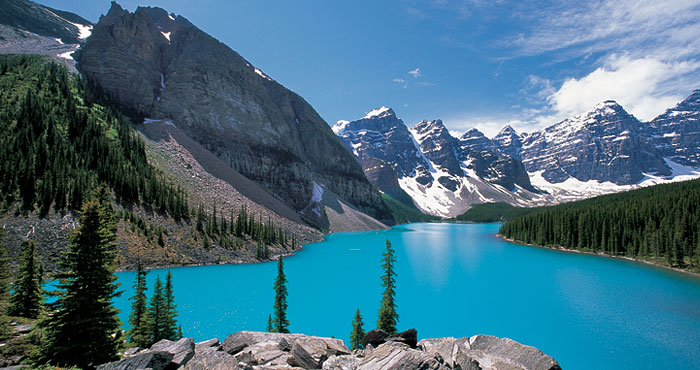Lethbridge, Alta. – Alberta’s government is partnering with the University of Lethbridge to study water storage, endangered species and other issues impacting Southern Alberta.
Alberta is a large, diverse province with many environments and ecosystems. Drought, habitat loss and other challenges can impact each region differently, and more research is needed to better understand Alberta’s wildlife, water and ecosystems.
A new $500,000 grant to the University of Lethbridge will help explore water storage in lakes, restoring habitat for the endangered sage-grouse, and other key environmental issues impacting Southern Alberta and other regions of the province. This collaborative research will help government and university researchers better understand and respond to droughts, species at risk, and changes in climate.
“We’re joining forces with the University of Lethbridge to look deeper into environmental issues impacting Southern Alberta,” said Rebecca Schulz, Minister of Environment and Protected Areas. “This grant will help us better maximize and manage Alberta’s water supply, reduce emissions, recover species at risk and protect the environment in the years ahead. This is a great example of government and university scientists working together.”
The three-year research grant will help support eight collaborative research projects investigating a wide range of topics, including:
- The water storage potential of Alberta’s lakes
- Carbon storage and carbon sequestration potential of Alberta wetlands and terrestrial ecosystems
- The impact of fire on carbon storage in Alberta peatlands
- The diversity, abundance, and biomass of key insects in provincially protected areas
In addition, the research will explore emerging questions and issues affecting Southern Alberta and the rest of the province:
- How habitat restoration and oil and gas site reclamation can assist in recovery of endangered sage grouse
- How changing weather patterns affect the productivity and carbon sequestration potential of native grassland and prairie wetlands
- How changing water temperature and contaminants may impact rainbow trout and brown trout populations in important fisheries like the Bow River
- How human recreation and other activities are affecting the Upper Oldman Watershed
“The ministry’s significant investment in eight innovative and provincially important research projects led by University of Lethbridge researchers working with Environment and Protected Areas colleagues is greatly appreciated,” said Dr. Dena McMartin, PhD, vice-president research, University of Lethbridge. “The research includes answering important questions about water resources and habitat management, carbon storage in landscapes, ensuring diverse and thriving insects, birds, and fish populations, as well as human actions and interventions that affect water and lands.”
These research projects will occur over the next three years and their results will be communicated through various academic journals, as well as on Alberta’s Environmental Science Program website.
“Partnerships between Alberta’s major universities and Alberta Environment and Protected Areas enable us to better understand and respond to current environmental opportunities and challenges in the province,” said Dr. Jonathan Thompson, PhD, chief scientist of Environment and Protected Areas.
This collaborative grant administered by the Office of the Chief Scientist and the University of Lethbridge provides an important opportunity to fill critical knowledge gaps and help support development of Alberta’s next generation of environmental researchers.”
This grant is part of a rotating program led by Alberta’s Office of the Chief Scientist. Previously, the University of Calgary and the University of Alberta received funding for key research activities. About $1.5 million in research grants will be awarded by the Office of the Chief Scientist this year to better monitor and understand Alberta’s environment.
Quick facts:
- Research funding is provided by the Enhancing Environmental Science in Alberta Grant jointly administered by Alberta’s Office of the Chief Scientist and the University of Lethbridge – College of Natural Sciences.
- All funded research projects will involve collaborative work between faculty and students at the university and government staff.
- The eight projects receiving full or partial funding are:
- “Quantifying and mapping carbon storage and water quality improvement services provided by Alberta’s prairie pothole wetlands”
- “A remote sensing-based regional and temporal assessment of Alberta’s lake water resources”
- “Carbon storage at risk: The impacts of fire on carbon losses from Alberta peatlands and assessing peatland vulnerability to high intensity fires”
- “Response of ecosystem carbon sequestration to variation in water availability associated with El Niño Southern Oscillation and Pacific Decadal Oscillation climate phases”
- “Response of endangered sage grouse to oil and gas reclamation in critical habitat in southeastern Alberta”
- “Combined effects of water temperature and urban runoff-associated contaminants on rainbow trout and brown trout”
- “Diversity, abundance, and biomass of key insects in wildlife food webs on Alberta Protected Areas”
- “Sharing the Headwaters: Understanding anthropogenic factors affecting the ecology of the Upper Oldman Watershed”









